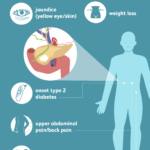Presented by BetterHelp.

Anxiety is an instinctual emotion meant to keep us safe from real or perceived danger. While it’s natural to feel anxious from time to time, such as when giving a speech or going on a first date, some people experience anxiety regularly—sometimes without a clear cause. When anxiety is uncontrollable and interferes with daily functioning, it could indicate an anxiety disorder. Here, we’ll discuss 10 common symptoms that could signal the presence of an anxiety disorder.
What Is An Anxiety Disorder?
Anxiety disorders are one of the most common mental illnesses in the world, impacting how a person thinks, feels, and behaves. These disorders tend to be accompanied by persistent feelings of panic, dread, or uneasiness, and physical symptoms can also be common. Anxiety differs from worry in that it affects a person’s ability to function and affects both their mind and body. As a debilitating mental health condition, getting help for an anxiety disorder can be critical to leading a productive life.
10 Symptoms Of An Anxiety Disorder
Anxiety affects everyone differently, with some people experiencing more severe symptoms than others. The following 10 symptoms could indicate that you’re experiencing an anxiety disorder:
- Trouble sleeping: Anxiety disorders often make it tough to fall asleep at night, whether due to racing thoughts or restlessness. You may experience insomnia or find that you keep waking up at random intervals throughout the night. In the morning, you may feel tired and unrested, making it even more difficult to cope with anxious feelings. To learn more about sleep and anxiety, you can visit: www.betterhelp.com/advice/anxiety/why-do-i-keep-waking-up-with-anxieties/
- Intrusive thoughts: If you have an anxiety disorder, you may find that controlling your thoughts feels impossible. Intrusive thoughts are those that you can’t get out of your head no matter how hard you try. Sometimes, these thoughts may be distressing and are often unwanted. Unfortunately, the harder you try to stop intrusive thoughts, the stronger they typically become.
- Nausea or stomachaches: Anxiety can affect your gut, leading to stomachaches, nausea, and other issues at the most inopportune times. Often, these feelings come out of nowhere and make you feel uneasy.
- A racing heartbeat: When life feels uncertain and your thoughts won’t slow down, it can cause your heart to race uncontrollably. You may also feel as if your heart is skipping beats or pounding, which could further increase your anxiety levels.
- Irritability: Anxiety can deplete your energy, causing you to be more irritable with the people in your life or different situations that arise. When your mind is full of worries and racing thoughts, it can be difficult to control your responses, leading to unintended poor reactions like snapping at other people or being overly impatient.
- Restlessness: When you have an anxiety disorder, you may feel unable to sit still. Many people describe this feeling as being “on edge.” This may be due to the fight or flight response being triggered, keeping your body and mind hyper-aroused at all times.
- Difficulty concentrating: Anxiety can make it challenging to focus on what’s in front of you, whether that’s homework, work assignments, or your kids. This inability to focus can impact your performance in school or at work and affect your relationships and quality of life.
- Dizziness or lightheadedness: Anxiety can change your breathing patterns, causing you to take in less carbon dioxide. This can create dizziness and lead you to feel faint even when you’re sitting down.
- Unexplained aches: Feeling anxiety throughout your body can cause you to tense your muscles, leading to aches and pains. You might also have chest pain, headaches, or achiness in your stomach.
- Frequent urination: Experiencing anxiety regularly can cause your body to stay in fight-or-flight mode, triggering the release of stress hormones like cortisol. When this occurs, it can lead you to take more trips to the bathroom than usual.
The presence of one or more of these symptoms doesn’t necessarily indicate an anxiety disorder. It’s possible to be under high levels of stress or have anxiety for a period without having a full-blown anxiety disorder. Speaking with a mental health professional to receive more information can help you learn more about your unique situation.
Conclusion
Anxiety disorders are serious mental health conditions that typically need some type of professional intervention and support, whether that’s attending therapy, taking medication, or doing both. Everyone’s situation is different, and anxiety presents uniquely in each person. Whether you’ve been experiencing troubling symptoms for a while or are just starting to notice them, it’s never too soon or too late to seek more information about what you’re going through. By staying aware of your symptoms and taking your health seriously, you can help ensure that you’re set up for success in maintaining positive mental wellness.




